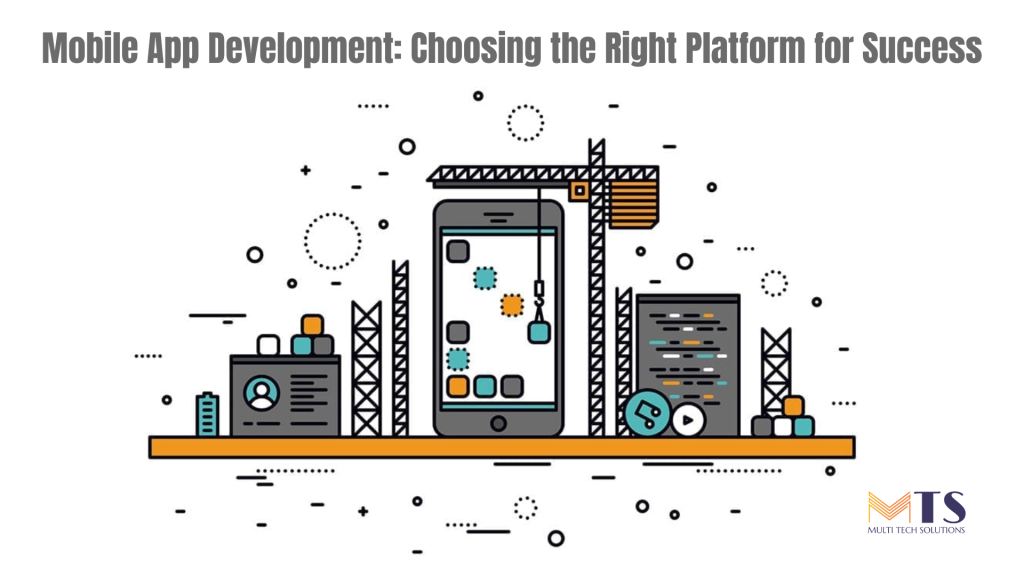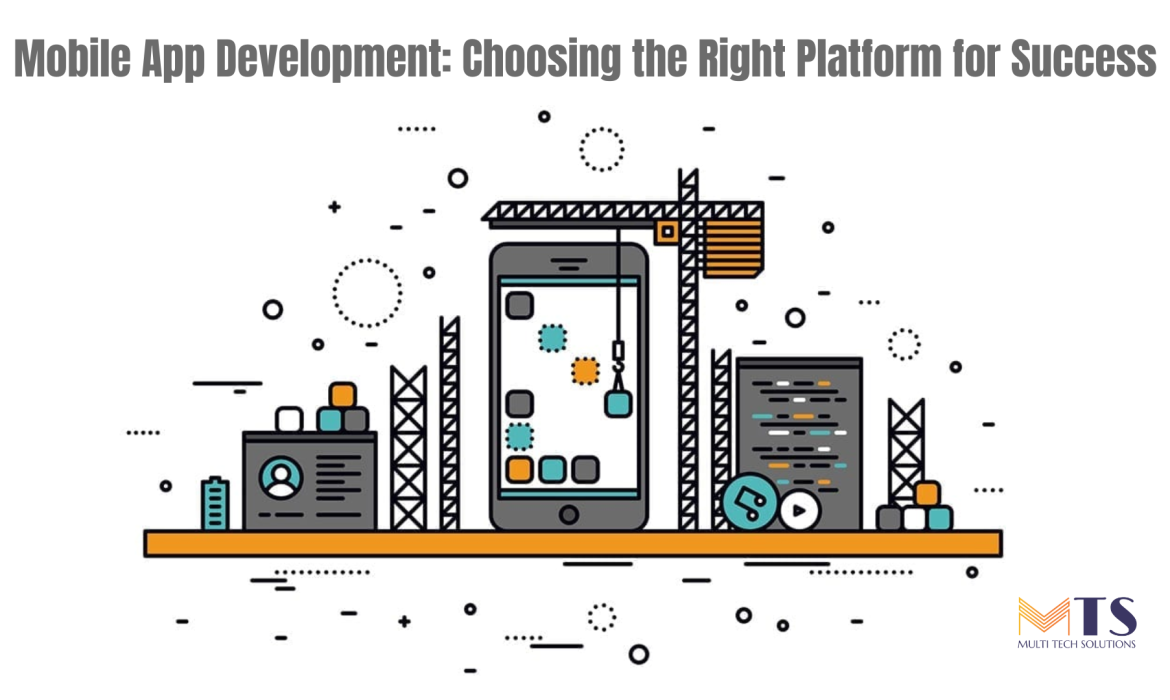
In today’s digital age, mobile apps have become an integral part of our lives. From communication and entertainment to productivity and shopping, mobile apps offer endless possibilities. If you’re a business or an aspiring app developer, the question of which platform to choose for your mobile app development project is crucial. With numerous options available, making the right decision can significantly impact the success of your app. In this blog post, we will guide you through the process of choosing the perfect platform for your mobile app development needs, providing you with valuable insights and considerations that will help you make an informed choice.
1. Define Your Target Audience:
The first step in choosing the right platform for your mobile app is to clearly define your target audience. Consider factors such as demographics, user preferences, and behavior patterns. By understanding your target audience, you can determine the platform that aligns with their preferences and provides the best user experience.
2. iOS: The Apple Advantage:
When it comes to mobile app development, iOS, the operating system powering Apple devices, offers a range of advantages. With a loyal and affluent user base, iOS provides a high potential for monetization through app sales and in-app purchases. The platform’s strict guidelines and quality control ensure a polished user experience, but it also means a longer review process and limited customization options.
3. Android: Widening Your Reach:
Android, the operating system developed by Google, dominates the global smartphone market. Its open-source nature and diverse range of devices make it an attractive platform for reaching a broader audience. The flexibility of Android allows for more customization and rapid deployment, but the fragmentation of devices and operating system versions can pose challenges to app compatibility and optimization.
4. Cross-Platform Development: The Best of Both Worlds:
If you’re looking to maximize your reach and minimize development efforts, cross-platform development frameworks such as React Native, Flutter, and Xamarin offer compelling solutions. These frameworks allow developers to write code once and deploy it across multiple platforms, significantly reducing development time and cost. However, performance optimization and platform-specific functionalities may require additional effort and expertise.
5. Consider Market Trends and Competition:
Staying up-to-date with market trends and analyzing your competition is crucial when choosing a mobile app development platform. Research the popularity of platforms within your target market, identify successful apps in your niche, and study their platform choices. By understanding market dynamics and competition, you can make informed decisions that set your app apart and capture user attention.
6. Technical Considerations:
Technical considerations play a vital role in selecting the right platform for your mobile app development project. Factors such as programming languages, development tools, and frameworks should align with your team’s expertise and project requirements. Consider the scalability, security, and performance capabilities of each platform to ensure your app can handle future growth and deliver a seamless user experience.
7. User Experience and Design:
A smooth and engaging user experience is crucial for the success of any mobile app. Each platform has its own design guidelines and user interface paradigms. Consider the user experience expectations of your target audience and evaluate how well each platform’s design language aligns with your app’s concept. Consistency, intuitiveness, and responsiveness are key factors to consider when making design choices.
8. Integration with Third-Party Services:
Many mobile apps rely on integration with third-party services, such as social media platforms, payment gateways, and analytics tools. Evaluate the ease of integration and availability of APIs and SDKs for each platform. Ensure that the chosen platform supports the necessary integrations to provide seamless functionality and enhanced user experience.
9. Development and Maintenance Costs:
Budget considerations are crucial when selecting a mobile app development platform. Each platform may have different development and maintenance costs associated with it. Consider factors such as licensing fees, development time, ongoing support, and maintenance requirements. Balance your budget constraints with the desired features and target audience to determine the most cost-effective platform for your project.
10. Future Scalability and Updates:
A successful mobile app requires continuous updates and enhancements to adapt to evolving user expectations and technological advancements. Consider the platform’s roadmap, update frequency, and community support to ensure long-term scalability. Choose a platform that offers regular updates, and security patches, and provides a thriving developer community for guidance and support.
In conclusion, choosing the right platform for your mobile app development project is a critical decision that can significantly impact its success. By defining your target audience, considering market trends, evaluating technical factors, and weighing design and cost considerations, you can make an informed choice that aligns with your project goals. Whether you opt for iOS, Android, or cross-platform development, prioritize user experience and stay adaptable to future scalability and updates. Embrace the power of mobile app development and create an exceptional app that captivates your audience, bringing your vision to life in the digital world.


